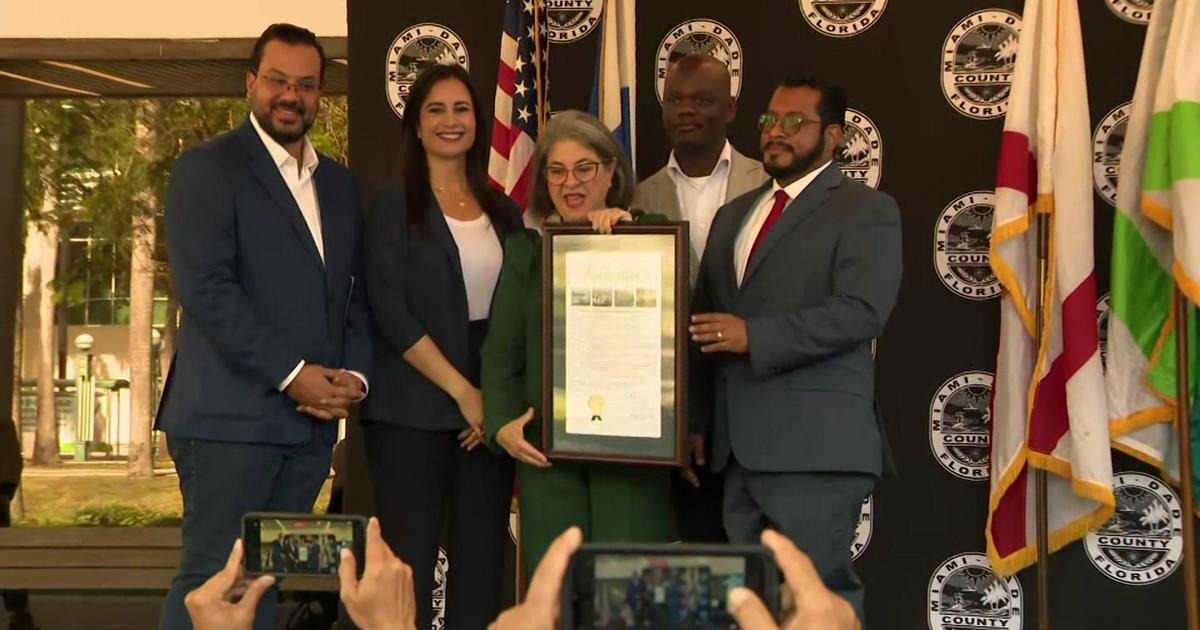Marine Conservation Is Critical For Scientists At Miami's Frost Museum Of Science
Follow CBSMIAMI.COM: Facebook | Twitter
MIAMI (CBSMiami) -- South Florida is no stranger to invasions from exotic species.
Consider this from Andy Dehart, Vice President of Animal Husbandry and Marine Conservation at Frost Science.
"We know that there are pythons in the Everglades, we know that there are non-native monitor lizards that live here, we know that there are parrots that live in our trees and our neighborhoods that doesn't even scratch the surface of the non-native plants that were all introduced here to Florida."
Years since the lionfish began populating our waters; many other uninvited fish are now surfacing. There are 38 species to be exact.
The Frost Science Marine Exotic Species Removal Program partners with U.S. Geological Survey and Reef.org, working to capture these former pets turned loose.
"We've collected purple tangs, Picasso triggerfish, yellow tangs, and naso tangs. These are all animals very popular. People think they are doing the right thing by letting them go rather than trying to get them back to a pet store or donating them to a public aquarium, unfortunately they don't understand the downstream effect that that could have," said Dehart.
The dramatic images of an alligator eaten by a python in the Everglades demonstrates how non-native animals released in the wild can adapt and disrupt the food chain. For marine life, the lionfish is public enemy number one.
"The lionfish unfortunately was the perfect invader. They have venomous spines, they have no natural predator and their consumption rate is alarming at how many native fish that they are eating. It's actually playing a number on our commercially important fish, such as groupers and snappers, but also the small reef fishes that come to these reefs for protection and feeding," explained Dehart.
Combating this problem requires an informed diving and boating community, rapid deployment to reported sighting of a non-native species, and even a little old-school detective work. The team has placed a "wanted" poster at the local dive shops in the Florida Keys for them to place on all their boats, so that clients know that if they see that fish they should inform the dive master.
The team has responded to several alerts reported to U.S. Geological Survey capturing purple tangs and some lesser-known creatures as well.
Lad Akins is the Dive Master and Captain for Frost Science and he says the teams have recovered some large exotic fish.
"There was a panther grouper, which is a big large predatory fish, it was two feet long. This was removed a few years ago."
Once a fish is captured it goes to Florida International University where it is put in quarantine for a while so that it doesn't introduce parasites or other diseases to the general population. E eventually it ends up in the aquarium on display. These captives are now ambassadors educating museum visitors in exchange for room and board.
"For these fish, it might be the hotel or the resort, as it doesn't have to fend for itself anymore. It's very well taken care of here at the museum," states Akins.
If you spot a fish that looks like it does not belong, do not try to catch it. The team says to take pictures so they can verify the accuracy of the report, get good coordinates and send a detailed report to the U.S. Geological Survey, who will dispatch a recovery team.
Click here for more information on the Frost Science conservation efforts.



